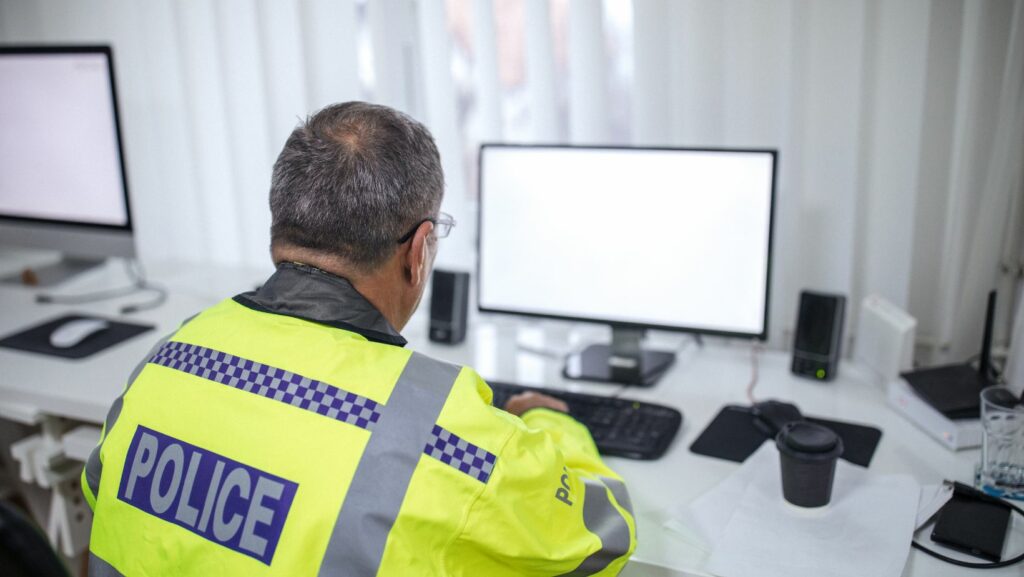What Happens If You File a Police Report But Don’t Press Charges? Understanding the Consequences

What Happens If You File a Police Report But Don’t Press Charges
Have you ever wondered what happens if you file a police report but don’t press charges? It’s a common question that many people have, and the answer can vary depending on the situation. When you file a police report, it means that you are providing information to law enforcement about an incident or crime that has occurred. However, pressing charges is a separate decision that lies in your hands.
When you file a police report, the information you provide becomes part of an official record. This record can be helpful for documenting the incident and can serve as evidence if charges are pursued later on. Additionally, filing a police report can help ensure that there is some form of investigation into the matter.
However, not pressing charges means that you are choosing not to pursue legal action against the alleged perpetrator. This could be due to various reasons such as lack of evidence, desire for privacy, fear of retaliation, or simply changing your mind. It’s important to note that even if you don’t press charges initially, it doesn’t necessarily mean they cannot be pressed at a later time.
When to File a Police Report
The Importance of Filing a Police Report
When it comes to determining whether or not to file a police report, there are several factors to consider. One of the most significant aspects is understanding the importance of filing a police report in the first place. A police report serves as an official record of an incident, providing crucial documentation that can be used for various purposes.
Filing a police report is essential for:
- Documentation and evidence: By filing a police report, you create an official record of the incident, including details such as date, time, location, and parties involved.
- Victim support: Filing a report helps ensure that victims receive the necessary support and resources they need during difficult times.
- Crime prevention: Reporting incidents helps law enforcement identify crime patterns and allocate resources accordingly.
Understanding the Consequences of Not Pressing Charges
While filing a police report is important, it’s also crucial to understand that doing so doesn’t automatically mean pressing charges against someone. It’s common for individuals to feel hesitant about moving forward with criminal charges due to various reasons such as fear, personal relationships, or lack of evidence.
However, it’s worth noting that failing to press charges does not minimize the significance of filing a police report:
- Future action possibilities: Even if you choose not to pursue charges immediately after filing a report, having an official record allows you the option to revisit your decision later if circumstances change or new evidence emerges.
- Protection for others: By documenting incidents through police reports without pressing charges personally, you still provide information that may help protect others from becoming victims of similar crimes.
- Legal considerations: Depending on your jurisdiction, there may be legal consequences for making false statements or withholding information during a police investigation.

Seeking Legal Advice if Unsure
If you find yourself in a situation where you have filed a police report but are unsure whether or not to press charges, it is crucial to seek legal advice. Consulting with an attorney can provide you with the guidance and information necessary to make an informed decision. Here are a few reasons why seeking legal advice is important:
- Understanding your rights: When faced with the decision of whether or not to press charges, it’s essential to have a clear understanding of your rights and responsibilities under the law.
- Assessing the evidence: A skilled lawyer can help evaluate the strength of the evidence against the alleged perpetrator. They will consider factors such as witness testimony, physical evidence, and any other relevant information that could impact your case..
- Weighing potential consequences: Pressing charges can have various consequences for both parties involved. It’s important to understand what these consequences might be before making a decision.
- Navigating complex legal procedures: The legal system can be intricate and overwhelming for those unfamiliar with its intricacies.
Remember that every situation is unique, so it’s crucial to consult with an attorney who specializes in criminal law or related areas when facing this dilemma. Their expertise will equip you with valuable knowledge and assist you in making an educated choice regarding pressing charges after filing a police report.

 Is 48Ft3Ajx Harmful? What You Need to Know
Is 48Ft3Ajx Harmful? What You Need to Know  The Ultimate Guide to Off-Piste Skiing in the Alps
The Ultimate Guide to Off-Piste Skiing in the Alps  Htsicret: Understanding Its Significance
Htsicret: Understanding Its Significance  Is Vallpo523.zvc5.0o Good For Skin?
Is Vallpo523.zvc5.0o Good For Skin?  The Importance of Effective Infotainment Solutions for Safety and Navigation
The Importance of Effective Infotainment Solutions for Safety and Navigation  Progression Guide for Successful Clash Royale Boosting for Beginners Who Want to Develop Their Account Faster
Progression Guide for Successful Clash Royale Boosting for Beginners Who Want to Develop Their Account Faster